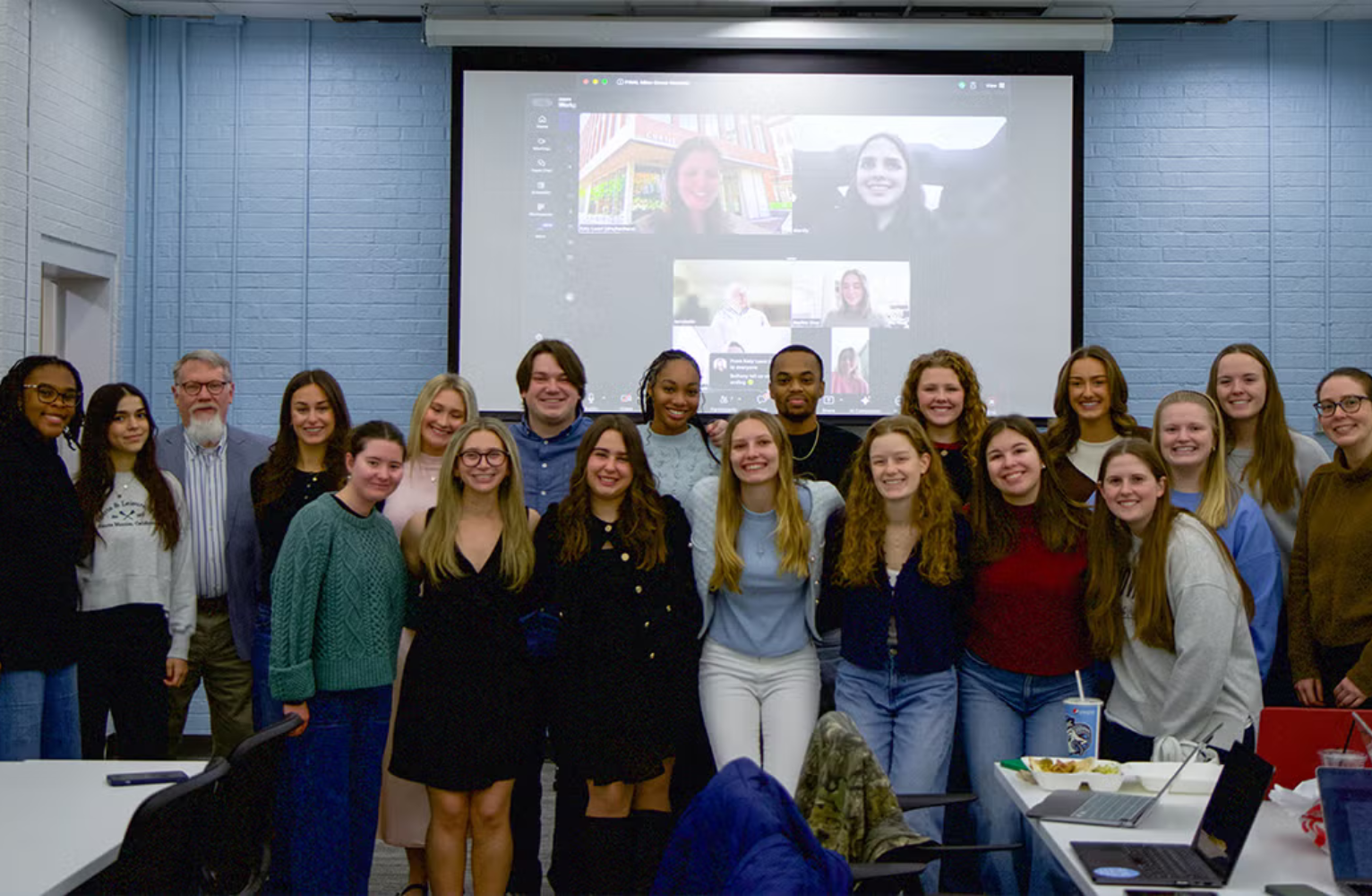
Kathleen DuVal, professor of history in the College of Arts and Sciences and UNC Institute for the Arts and Humanities Faculty Fellow, is the most recent recipient of the Cundill History Prize.
The Cundill prize is one of the most prestigious awards in the field of history. It is awarded annually by McGill University in Montreal, Quebec, to a recent history publication embodying “historical scholarship, originality, literary quality and broad appeal.”
In 2024, they honored DuVal’s publication, Native Nations: A Millennium in North America.
The book documents Native American history and culture “telling their story from the rise of ancient cities more than a thousand years ago to fights for sovereignty that continue today,” according to its publisher, Penguin Random House.
Native Nations is the product of nine years of research and 20 years of teaching. At Carolina, DuVal teaches the course “Introduction to the Cultures and Histories of Native North America,” which was the original inspiration behind the book.
“I like when students who take the class learn that Native Americans have been here a long time, that there were thousands of years in which they were very, very powerful,” she said. “But also, every student learns that Native nations are still around today. And so in this book, I wanted to give readers the same experience.”
Each chapter covers a different native nation, relying on written sources from the 16th through 20th centuries and oral histories to learn about the people that lived there and the governing structures they built.
The UNC Institute for the Arts and Humanities (IAH) provided some support for this massive undertaking.
Over the course of writing her award-winning book, DuVal was a Institute for the Arts and Humanities Faculty Fellow, in 2022. Recipients of this fellowship are granted funding for semester-long leave to complete a research or creative project and are asked to attend weekly seminars with the other fellows.
For DuVal, this fellowship provided a vital community of researchers and writers.
She notes how research and writing can be an isolating process for faculty. Between professors teaching classes each semester and service, the focus on research can get lost in the shuffle.
“We don’t always actually talk about our research as much as we should, and we don’t have all that much time for it,” she said. “Having a group of fellows who are other faculty members at UNC, we talk about our research, and it’s this special place where it’s kind of back to the way it was in grad school.”
DuVal now serves on the Faculty Fellowship Selection Committee and helps fundraise for the IAH, ensuring other faculty get the same opportunity she had.
At a recent fundraising event in Greensboro, North Carolina, DuVal helped highlight the important work done by members of the Institute. She presented her research — some of which ultimately became Native Nations — to a crowd of Carolina alumni.
“I think it really showed what the institute can do when it gives fellows community and time away from teaching to focus on their research.”
Written by Cameron Neale ’25
Campaign for Carolina Impact
Kathleen Duval’s prize winning book (now also the recipient of the 2025 Pulitzer Prize in History), was supported by a fellowship from the Institute for the Arts and Humanities that was created during the Bicentennial Campaign and that received additional funding during the Campaign for Carolina. The Campaign for Carolina raised more than $5 billion for students, faculty, research and patient care at UNC-Chapel Hill.
Related Stories




